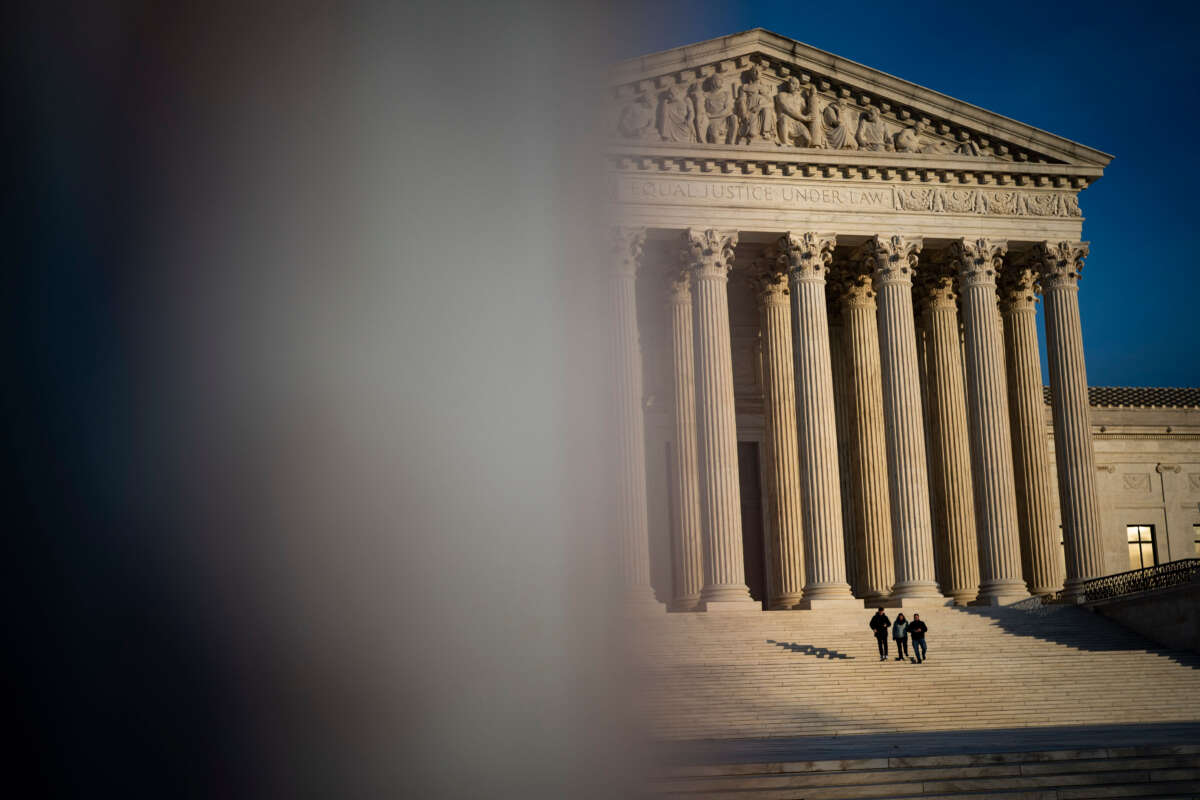Did you know that Truthout is a nonprofit and independently funded by readers like you? If you value what we do, please support our work with a donation.
Democrats on the Senate Judiciary Committee advanced legislation on Thursday that would force the Supreme Court to adopt an ethics code for the first time in history.
The committee voted along party lines to approve Sen. Sheldon Whitehouse’s (D-Rhode Island) Supreme Court Ethics, Recusal, and Transparency (SCERT) Act, which is aimed at reining in corruption among justices in a time when new Supreme Court scandals are being uncovered nearly every week.
Before the vote on Thursday, Whitehouse said that legislation like the SCERT Act is “overdue.”
“The Supreme Court has been captured by special interests,” Whitehouse said. “We are here because the highest court in the land has the lowest standard of ethics anywhere in the federal government.”
If passed, the bill would place stricter requirements around disclosing gifts and travel, especially when they involve people tied to parties with business before the Court. It would also tighten rules around recusals from cases when a justice may have a potential conflict of interest.
Supreme Court ethics are indeed in crisis. In the past months, reporters have uncovered that Justices Clarence Thomas and Samuel Alito have both accepted luxury gifts and trips from wealthy conservatives worth hundreds of thousands of dollars that the justices never reported. Further, both justices have not recused themselves from cases involving their donors.
Experts have said that justices have broken multiple disclosure laws in the process — but, because the Supreme Court doesn’t have a binding ethics code or strong punishments for breaking disclosure laws in this way, and because Chief Justice John Roberts refuses to act on the allegations, the justices are seemingly facing zero consequences for their corruption. As a result, public trust in the Supreme Court is at an all-time low.
Despite this, SCERT isn’t likely to pass the Senate. Republicans have pledged to vote against the bill, effectively killing it. As they have vehemently defended right-wing Supreme Court justices’ right to act with impunity as the Court hands down win after win for the far right, the GOP has dubiously claimed that Congress has no jurisdiction over the Supreme Court — which experts have said is blatantly untrue.
“The court’s financial disclosure requirements are a law passed by Congress. Its recusal requirements are a law passed by Congress. And the body that implements financial disclosure and code of conduct issues is the Judicial Conference — a body created by Congress,” said Whitehouse. “Please, let’s not pretend that Congress can’t make amendments to laws Congress has passed or oversee agencies Congress has created…. Even the Court has demonstrated it does not believe that canard.”
Meanwhile, Republicans have essentially outright said that the reason the party doesn’t actually want to rein in the Supreme Court is because doing so would risk making the Supreme Court less conservative. In committee debate over the bill, Sen. Lindsey Graham (South Carolina), the committee’s top Republican, said that SCERT is “a bill to destroy a conservative court.”
Recent polling has found that the majority of the public agree that the Supreme Court is in need of ethics reform. A Navigator Research poll released Tuesday found that 67 percent of Americans support the passage of the SCERT Act, including a majority of Democrats, Independents and Republicans. Another poll by YouGov, commissioned by Demand Justice and released this week, found that 59 percent of Americans would be less likely to vote for a candidate for Congress who opposes Supreme Court ethics reform.
Press freedom is under attack
As Trump cracks down on political speech, independent media is increasingly necessary.
Truthout produces reporting you won’t see in the mainstream: journalism from the frontlines of global conflict, interviews with grassroots movement leaders, high-quality legal analysis and more.
Our work is possible thanks to reader support. Help Truthout catalyze change and social justice — make a tax-deductible monthly or one-time donation today.
